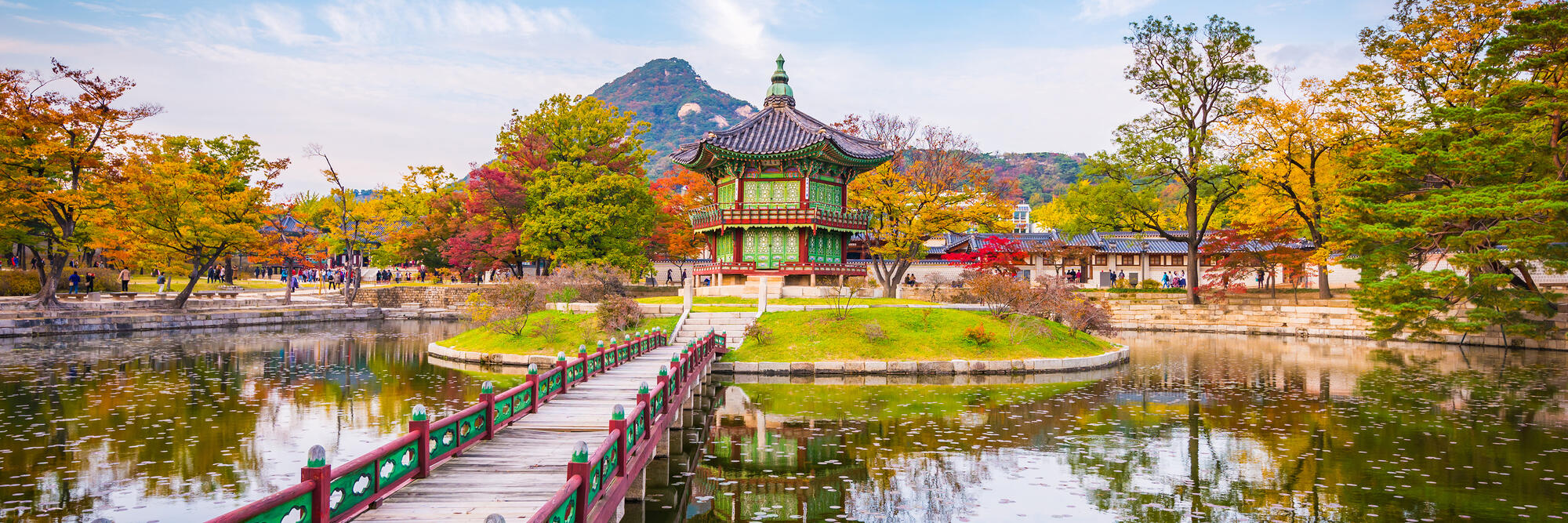In South Korea, ESL teachers usually head for the bigger centres like Seoul or Busan. But what’s it like to live and work in the South Korean countryside? Sally Bucey explains…
I’ve never been what you’d call a "country girl"; I grew up in the suburbs of a US city and spent my college years downtown, living in the heart of the bustling campus and loving the busy atmosphere. I elected to take a semester abroad in the megacity of Buenos Aires, Argentina, and I’ve been known to turn down a camping trip or two, or three, or four. But when I began applying for ESL jobs in South Korea, I neglected to look closely at the job locations. This (for better or worse) landed me a great job, well paid and with abundant vacation time, that consequently also was situated outside any major urban area… very far outside. In fact, I had moved to the Korean countryside.
"When I began applying, I neglected to look closely at the job locations…"
And in true "Sally" fashion, when faced with potentially overwhelming, life-altering circumstances, I simply thought, "I’ll figure it out." Indeed, I figured it out, but adjusting has been nothing less than a challenge. Still, each challenge has its own reward, and I wouldn’t exchange my situation for any other. Living in the countryside of Korea, as opposed to a city, has pushed me to learn and grow in ways that I never thought I could and will only benefit me in the future. My experience has been unique and one from which any potential expat could learn.
Living 18 kilometres from the nearest "city" of only 100,000 or so residents means that I’m far away from not just Western comforts and amenities, but also essentials like a post office, a bookshop or a bank with international-wire capabilities. So while I have no issues finding groceries, cheap fried chicken or Korean restaurants, and while there is a bank in town, there are some things that just can’t be done without visiting the nearest city.
"There are some things that just can’t be done without visiting the nearest city."
So nearly every weekend, I find myself taking the 45-minute bus ride into the city to take care of errands; I need new shoes, I want to get my nails done, and I can’t find a decent sweater for work. If I’m in search of peanut butter, I’ve little chance of finding it in my neighbourhood grocery store, and I may need to go so far as Seoul to get my hands on any. Once a month, I come into work late because I need to spend the morning in the city wiring money home to pay for those pesky student loans. When one lives in the countryside, a large part of what one’s giving up is just the convenience that we’re all so accustomed to.
When one door closes, another invariably opens; where I live is exceptionally beautiful. The region is famous for its breathtaking sunsets over the sea, interrupted by small islands. From my apartment, I can see over green, lush rice paddies and farmland all the way to the ocean. On my way to the bus stop, I pass an apple orchard. The rice paddies behind my apartment complex seem to stretch on endlessly in one direction; an unstoppable field of green.
"Where I live is exceptionally beautiful..."
And the beauty of a small town can also be found in the people themselves. Friendly and welcoming, I’ve made more friends at the local track than I’ve made going out in Seoul. Yes, villagers stare at me and old women touch my face in some sort of disbelief, but no one is rude. The convenience store owners all smile and wave, and in turn, I practice my Korean.
Which leads me to the biggest advantage of living in the countryside for anyone with a vested interest in learning Korean: no one speaks English. Barely a soul can manage a sentence. Learning Korean will still be challenging, but getting in practice with the locals won’t be a struggle, as it might be in a city where locals are eager to practice their English with you. Like any Asian country, there is no shortage of miscommunication, and as an expat living in the countryside, one is responsible for filling that gap, not the other way around.
"…no one speaks English. Barely a soul can manage a sentence…"
This, of course, is also a huge disadvantage, because any other native English speakers don’t live anywhere near me. I’m a bit of an outcast in the nearby expat community simply for that reason: I’m not really nearby. I can’t form close bonds with people who see me once a week, at maximum, for lack of time to bus myself into the city. And when I do visit, I have a curfew: the last bus home leaves at 9:30pm. Hitting the bars isn’t much of an option for me, unless I’m willing to pay the $20 taxi fee to get home afterwards, and as a result, I miss out on all the fun, drunk bonding between foreigners.
So, with challenges abound but endless opportunities for learning to be had, the countryside could be your ideal home away from home. But to survive, one’ll need ample amounts of flexibility, an open mind, an appreciation for alone time and some serious coping mechanisms. The rewards, though, are great: an increased appreciation for small-town life, a realistic view of needs versus wants, local Korean friends, and a chance to learn Korean at an accelerated rate.
I’ve found it to be an experience I wouldn’t trade for anything, regardless of the tough times (that I’m sure are far from over). City life has its own challenges, which are not to be taken lightly by any means, but for someone who’s never had to soldier up for a life in the middle of nowhere, let alone abroad, it’s an opportunity well worth taking. I encourage anyone with a taste for the road less travelled to consider teaching outside the city and, for a change, in the quaint, beautiful, ruggedly authentic Korean countryside.




